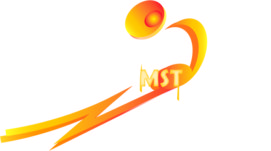
By now, you probably have heard rumblings about ChatGPT – an “AI Chatbot” that was recently released for general (free) use. Coming off the heels of just having read a few books on artificial intelligence, I was curious to see if AI could take over my blog posting duties and give me a vacation! Getting access to ChatGPT was remarkably easy. I went to this website:
https://www.digitaltrends.com/computing/how-to-use-openai-chatgpt-text-generation-chatbot/
This site gives a nice overview of ChatGPT and provides step-by-step instructions for accessing the web page and establishing an account. Within 5 minutes, I was up and running. once you have access, it is as simple as typing in your request to the chat bot. I typed in the following:
write an 8 paragraph summary of the mental skills tools discussed in the blog https://mikerouleaumentalskills.optimalmentalgame.com/
Here is the verbatim results that the system returned to me (it actually typed it out in real time on my PC taking all of about 1 minute to compete!):
The blog post titled “Mental Skills Tools” by Mike Rouleau discusses eight key mental skills that athletes can use to improve their performance. These tools are critical for any athlete looking to achieve their goals, and can be applied in a variety of sports and performance settings. The following is a summary of the eight mental skills tools that are discussed in the blog post.
The first mental skill discussed in the blog post is goal setting. Rouleau emphasizes the importance of setting specific, measurable, and achievable goals in order to stay motivated and focused. By setting goals, athletes can create a roadmap for success and measure their progress over time. Rouleau recommends that athletes set both short-term and long-term goals, and regularly review and adjust their goals as needed.
The second mental skill discussed in the blog post is visualization. Rouleau suggests that athletes use visualization techniques to mentally rehearse their performances before they occur. By visualizing a successful performance, athletes can build confidence and reduce anxiety. Rouleau recommends that athletes use as many senses as possible when visualizing, including sight, sound, and touch.
The third mental skill discussed in the blog post is self-talk. Rouleau explains that the way athletes talk to themselves can have a significant impact on their performance. Positive self-talk can help athletes stay motivated and focused, while negative self-talk can create anxiety and self-doubt. Rouleau recommends that athletes practice positive self-talk by using affirmations and focusing on their strengths.
The fourth mental skill discussed in the blog post is relaxation. Rouleau explains that relaxation techniques, such as deep breathing and progressive muscle relaxation, can help athletes manage stress and anxiety. By practicing relaxation techniques regularly, athletes can improve their ability to stay calm and focused under pressure.
The fifth mental skill discussed in the blog post is concentration. Rouleau suggests that athletes use concentration techniques, such as focusing on a single point or using mental cues, to improve their ability to stay focused during competition. By training their concentration skills, athletes can reduce distractions and improve their performance.
The sixth mental skill discussed in the blog post is confidence. Rouleau explains that confidence is critical for athletes to perform at their best. By focusing on their past successes and positive attributes, athletes can build their confidence and perform with more self-assurance. Rouleau recommends that athletes also use positive self-talk and visualization techniques to build their confidence.
The seventh mental skill discussed in the blog post is motivation. Rouleau explains that motivation is what drives athletes to achieve their goals. By understanding their own motivation and setting goals that align with their values, athletes can stay focused and committed to their training. Rouleau recommends that athletes also use positive self-talk and visualization techniques to maintain their motivation.
The eighth and final mental skill discussed in the blog post is resiliency. Rouleau explains that athletes will inevitably face setbacks and challenges throughout their careers, and that resiliency is critical for bouncing back from these difficulties. By staying positive, learning from their mistakes, and maintaining their motivation, athletes can build their resiliency and overcome obstacles.
In conclusion, the mental skills tools discussed in the blog post are critical for any athlete looking to improve their performance. By using techniques such as goal setting, visualization, self-talk, relaxation, concentration, confidence, motivation, and resiliency, athletes can develop the mental toughness needed to succeed in their sport. By regularly practicing these mental skills, athletes can build their confidence, manage stress and anxiety, and perform at their best.
Wow! not a bad summary! I was totally blown away with how quickly the content was generated. Does this mean I will let a chat bot write all my future posts – not hardly (but feel free to tell me if you, as a reader, would prefer that!). However, the technology is quite impressive. Feel free to give it a try! It is simple to access and free to use – at least for now. And I promise, my next post will come from my own neurons typing into my PC!
